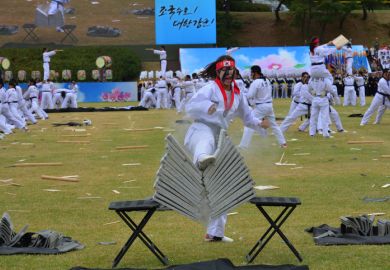This is an intelligent and entertaining book by a trainee surgeon. Its provenance, I guess, is Samuel Shem's novel The House of God (about the first year of life as a medical intern) and the TV series ER. Just as ER uses cross-cutting plots, here the chapters take in, for example, how a surgeon learns manual skills, and the problems of burn-out, obesity and chronic pain.
In the best American journalistic tradition, each chapter tells a human-interest story. The net result is that you romp through the book like a thriller with multiple plots, but behind most stories lie important thoughts that linger intriguingly. No more perhaps than you would expect from a Rhodes scholar with a Balliol degree in PPE and experience of working in the Clinton administration.
Atul Gawande divides the book into three sections - fallibility, mystery and uncertainty - and the structure hangs together well. Early on he mentions the saying about surgeons: "Sometimes wrong; never in doubt" - reckoning that this is a strength, not a weakness, as uncertainties are part of a surgeon's life, given inadequate information, ambiguous science and imperfect knowledge and abilities. Yet the surgeon has to know when to act or not to act.
The public importance of uncertainty in medicine is that we rarely discuss it. In a culture of "I want it, I will get it", the very idea that you might have a disease for which there is no fix is hard to swallow. In a scientifically illiterate media there is no room for critical appraisal of evidence. Sales figures dictate coverage of the most ludicrous epidemiological findings.
Gawande tackles decision-making at an individual level, using a decision tree laced with unknowns on treating a woman with necrotising fasciitis and quotes David Eddy on the arbitrary nature of medical decision-making. In the current push to involve patients, little thought is given as to how to empower them to make their decisions. The reality is that the crucial decision is to choose the right professional.
The chapter "Education of a knife" tells the story of how the author learnt to put in a central venous line, which involves sticking a big needle into a big vein, having guessed where the vein is running beneath the skin.
Gawande writes beautifully about the anxiety and politics of learning the manoeuvre. In a training culture of "see one, do one, teach one", he captures the anti-machismo of admitting defeat, sweat on the brow, and the unwillingness to stab the patient. (There is now an ultrasound device to pinpoint the target vein.) The burn-out chapter bears re-reading. In teaching, just as in clinical practice, we make little allowance for waning or changing interests or capabilities. It is a rare individual who wants to carry on teaching or operating in the same way past the age of 50, but we give little thought to the recognition of the waning appetite, and less to how we change a surgeon's commitments to everyone's benefit. But perhaps this is just age thinking.
Gawande's book is a marvellous read, and is both thought-provoking and entertaining.
Henry McQuay is professor of pain relief, Churchill Hospital, Oxford.
Complications: A Surgeon's Notes on an Imperfect Science
Author - Atul Gawande
ISBN - 1 86197 498 1
Publisher - Profile
Price - £7.99
Pages - 269
Register to continue
Why register?
- Registration is free and only takes a moment
- Once registered, you can read 3 articles a month
- Sign up for our newsletter
Subscribe
Or subscribe for unlimited access to:
- Unlimited access to news, views, insights & reviews
- Digital editions
- Digital access to THE’s university and college rankings analysis
Already registered or a current subscriber?



